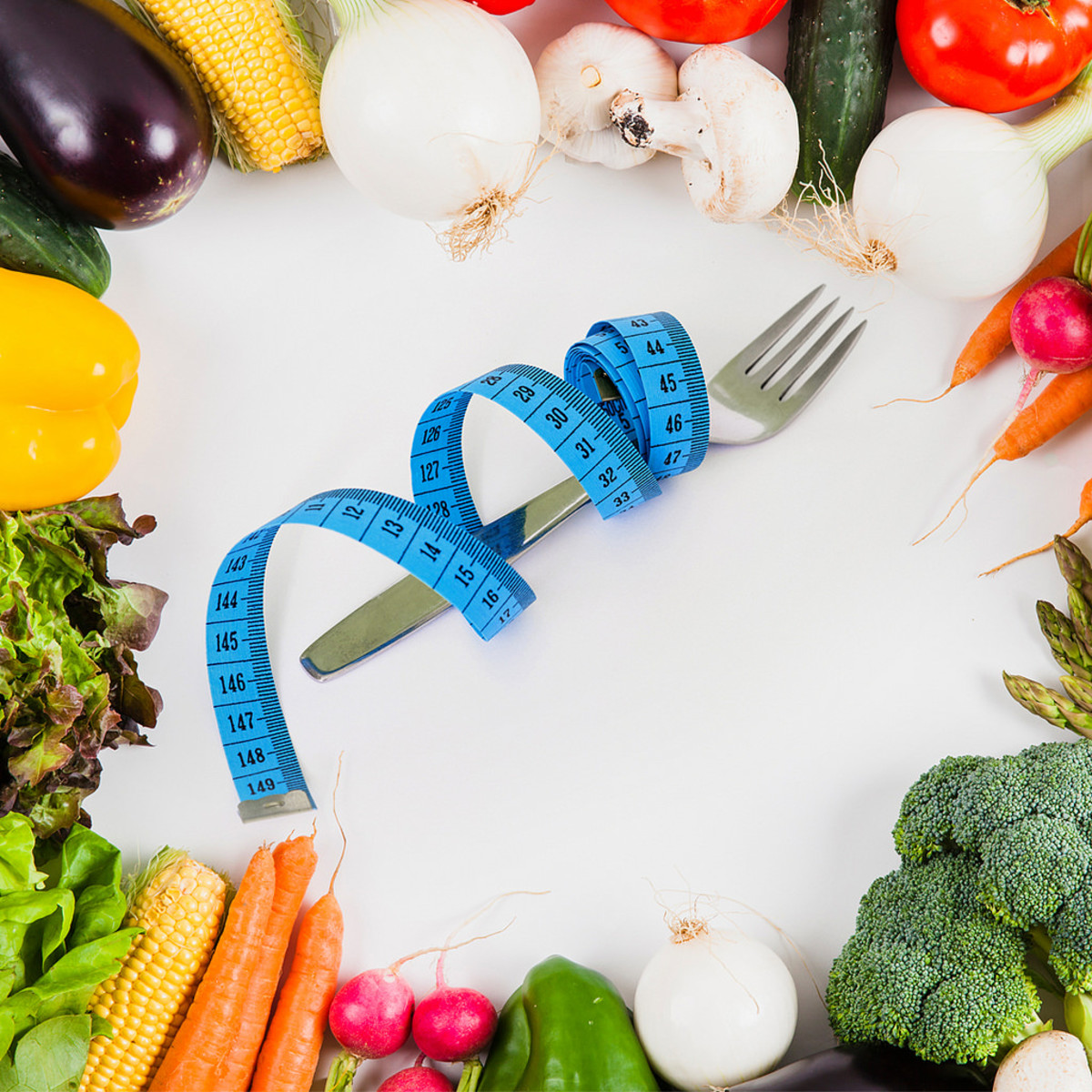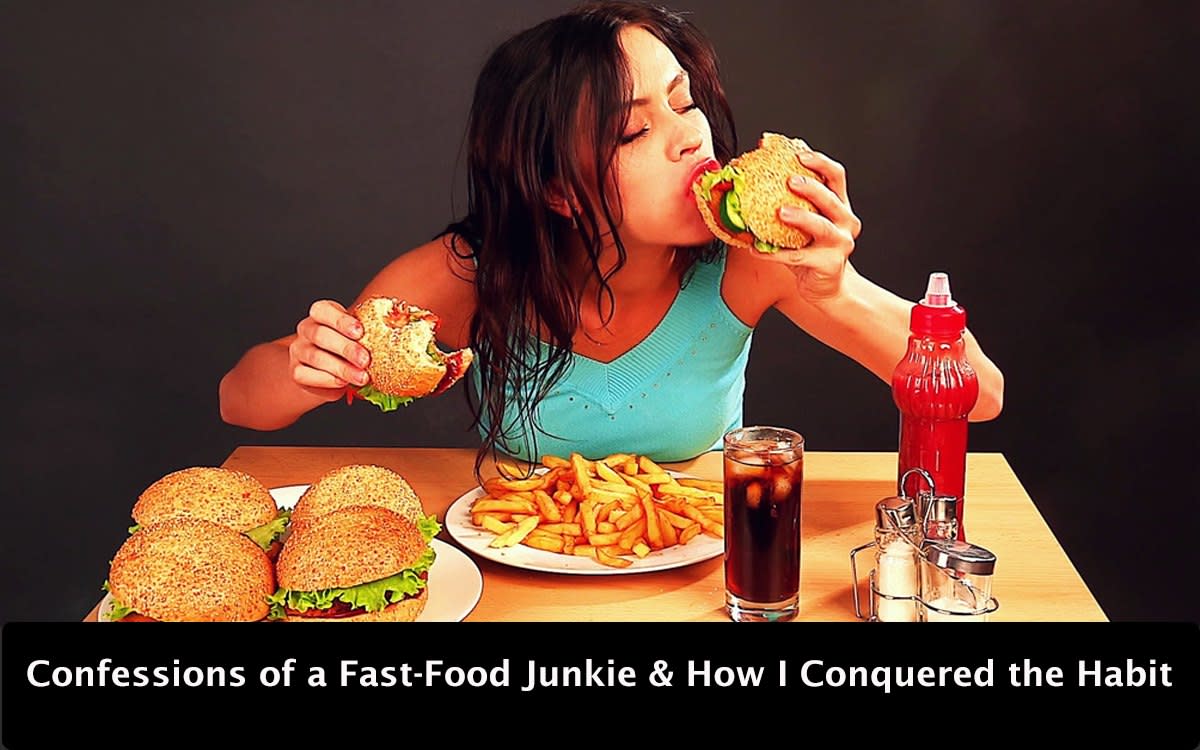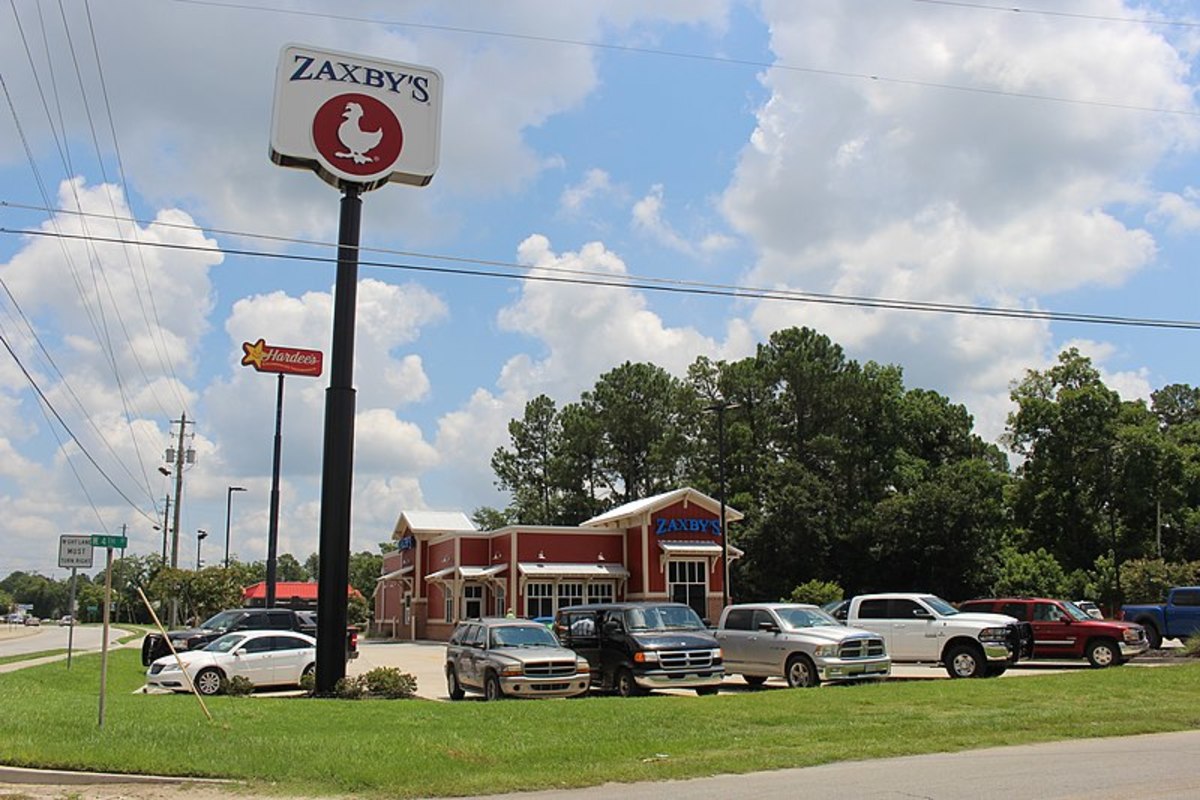How to Beat Your Fast Food Addiction
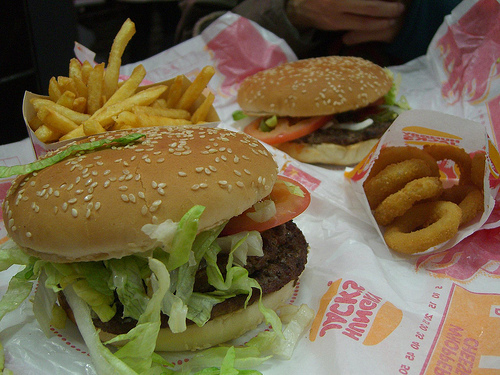
New Report: Fast Food as Addictive as Cocaine or Heroin
According to information from a recent study published in Nature Neuroscience, different types of fast foods and junk foods may actually be hard-wiring our brains to develop cravings for these foods.
In this study, pleasure centers in the brains of laboratory rats were overstimulated from eating fast food. These reactions and changes in the brain chemistry were found to be similar to the reactions in the brain caused by heroin and cocaine. Read more about this study here.
Over time, the brains of these laboratory rats became so overstimulated from the fast food that their brain chemistry was altered. According to Associate Professor Paul Kinney at the Scripps Research Institute, the test rats actually needed more and more of the chemicals found in their fast food diet to feel normal.
The rat's brains were actually altered, changed by the consumption of fast food. They became reliant on the regular consumption of a specific substance to make them feel better. Sounds like fast food can indeed be addictive.
.

Are You Addicted to Fast Food?
Addiction is a very strong word so let's start this section by defining an addiction.
According to Webster, an addiction is defined as a "compulsive need for and use of a habit-forming substance characterized by tolerance and well-defined physiological symptoms upon withdrawal."
Other definitions include the "persistent compulsive use of a substance known by the user to be harmful." According to this definition, fast food can be addictive.
.
Symptoms of Fast Food Addiction
In order to determine if you (or someone you know) is addicted to fast food, simply look for the symptoms of addiction. First, is food always on your mind?

If you are thinking about eating more fast food all the time or worried that the fast food you eat is bad for you and may cause problems with your ability to work or affect your ability to function in family or social relationships, you may have a problem with fast food addiction.
Other symptoms of fast food addiction include the desire to stop eating fast food but having no control or ability to stop, eating fast food in secret, lying about what you have eaten or regularly eating fast food beyond the point of feeling full.
One final symptom is eating fast food due to emotional stress. Sure, we all eat for this reason on occasion, but if you find you crave or need fast food regularly when feeling anxious, depressed, lonely or bored - you may have an addiction to fast food.
.
Fast Food and Financial Concerns
Let's face it, eating out frequently is expensive. The average cost of a fast food meal today is between $7 to $9 (USD) per person. If you eat out three times per day that come to about $24 per day, $168 per week per person.
Feeding a family of four on all fast food fare could easily run over $670 per week - that comes to $2,688 per month.

Even eating out just half the time runs around $1,344 per month for a family of four. The cost of groceries for that same family of four is going to be far less.
Changing from fast food to food prepared at home will have an immediate positive impact on your financial situation.
Even if you can survive on the dollar menu for a long time, the over all financial cost of future health care is going to cost you.
A fast food diet high in sodium, sugar and fat is inevitably going to lead to the development of one or more health conditions like diabetes, heart disease, high blood pressure or even cancer.
Think of the long-term cost of surviving cancer and the financial strain that this could potentially place on you or your family.
.
Fast Food and Health Concerns
Speaking of health concerns, I don't need to tell you that a fast food diet is going to lead to developing some future conditions and diseases that are going to be expensive to manage.
Heart disease, hypertension, diabetes, and various types of cancer are all included among the many health problems caused by consumption of large amounts of foods high in fat, sugar, carbohydrates and sodium.
Even if you have great health insurance, the average out-of-pocket expenses for some cancer patient runs around $18,000 - that's on top of the expenses covered by health insurance. I am a cancer survivor and I can tell you it is an expensive disease to manage and defeat.
The long-term costs for managing diabetes, high-blood pressure or heart disease may also be quite significant.
.
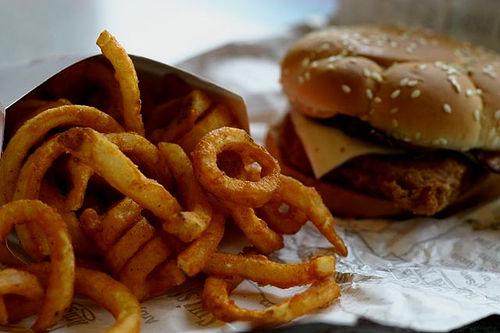
How to Kick the Addiction to Fast Food
So, if you have decided to conquer your fast food addiction, you're going to need to take some action.
Let me suggest something that worked well for me in my fight to eliminate fast food from my diet.
First, collect all your fast food receipts for the past week (or a typical week of fast food habits), total the amounts and divide that amount by two. For example, If you spend $25 a week on fast food, half of that amount would be $12.50.
Next, get the $12.50 in hard cash and place that into a ziplock bag, This is your fast food budget bag. Use this money in any way you like for fast food during the upcoming week. When the money is gone from the bag, your fast food eating days for that week are over.
This teaches you to ration your money and helps to cut your addiction to fast food in a gradual manner. The following week, cut the amount of available fast food cash by half once again. In just a few weeks, you'll have successfully cut out fast food altogether.
Fast Food Addiction Science...
Is Fast Food Addiction Real? You Decide.
Reliance on a substance to alter the way you feel or alter the chemicals in your brain to "handle" difficult situations is a sign of addiction.
If you're using fast food to deal with your problems, you may have a problem and it is especially important that you seek help from a professional.
Talk to your doctor, healthcare professional or a registered dietician who specializes in eating disorders (also known as disordered eating).
The information in this article is provided as a information resource only. This information should not used for treatment or diagnosis of any medical conditions. As a first step, always consult your physician or healthcare professional before making any decision or assessment regarding any possible medical condition.
________________________________________________________________


